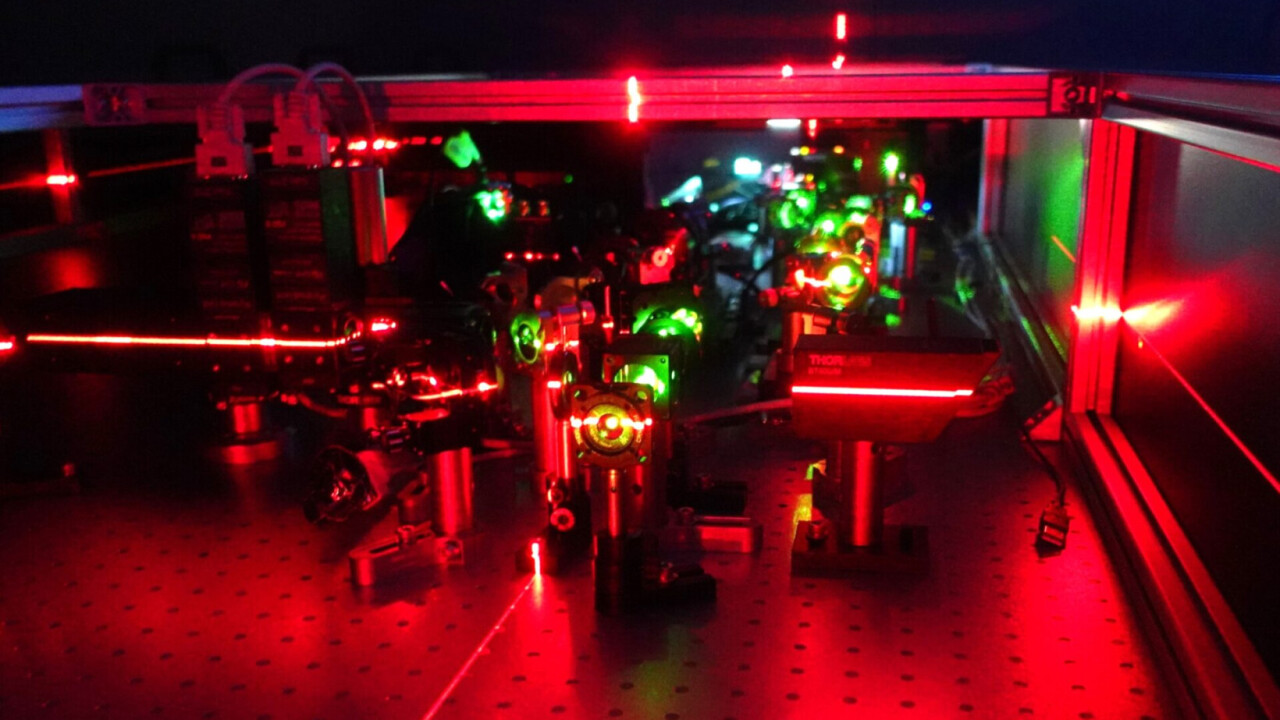
British startup Tokamak Energy is testing a new type of laser that it says is “crucial” to stabilising fusion reactions — the same atom-fusing process that powers the Sun and promises to deliver virtually limitless, clean energy.
The Oxford-based company is building ST40, a donut-shaped machine that in 2022 became the first privately-owned fusion reactor to reach 100 million °C — six times as hot as the core of our closest star. This is generally regarded as the temperature threshold whereby fusion reactions can become self-sustaining.
During fusion, atoms merge together. This produces huge amounts of power in the form of plasma. Charged with energy, this super hot plasma spins around a fusion reactor at a brisk 360,000 km/h — which unsurprisingly makes it difficult to control.
Tokamak Energy’s new laser-based dispersion interferometer system is designed to keep the plasma stable, hold density, and maintain fusion conditions.
“Measuring plasma density is key to our understanding and control of the fusion fuel and efficient future power plant operations,” said Dr. Tadas Pyragius, a plasma physicist at Tokamak Energy.
“A laser beam fired through the plasma interacts with the electrons and tells us the density of the fuel, which is essential for sustained fusion conditions and delivering secure and reliable energy to the grid,” he explained.
Like its name suggests, the company is building a tokamak reactor, the most common kind of fusion design, first pioneered in the 1960s. Tokamaks use giant magnets to keep plasma moving in a loop while running an electrical current through it.
Tokamak Energy is developing a more compact tokamak design that it says is more efficient, meaning it can operate with lower capital investment, operating costs, and on a smaller scale. Discovered by one of the company’s founders in 1980, this design is now the basis for several fusion energy programmes around the world, including the UK government’s Spherical Tokamak for Energy Production (STEP) project.
Tokamak Energy has raised €230mn to date — making it Europe’s most well-funded fusion startup. In hot pursuit are Germany’s Marvel Fusion and Focused Energy, which have raised €110mn and €75mn, respectively. And then there’s the UK’s First Light Fusion, which has bagged €90mn to develop its giant ‘gun’ fusion machine.
The company is currently working on upgrading and testing its pilot machine at its Oxford headquarters, with plans to develop its first commercial plant “in the 2030s”. Tokamak intends for the reactor to produce around 500MW of clean electricity — enough to power approximately 85,000 homes.
This video explains Tokamak Energy’s tech in more detail:
Get the TNW newsletter
Get the most important tech news in your inbox each week.





